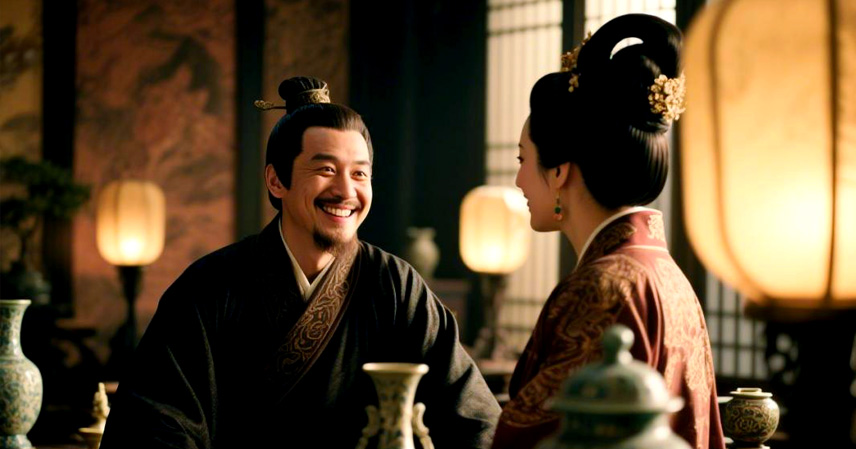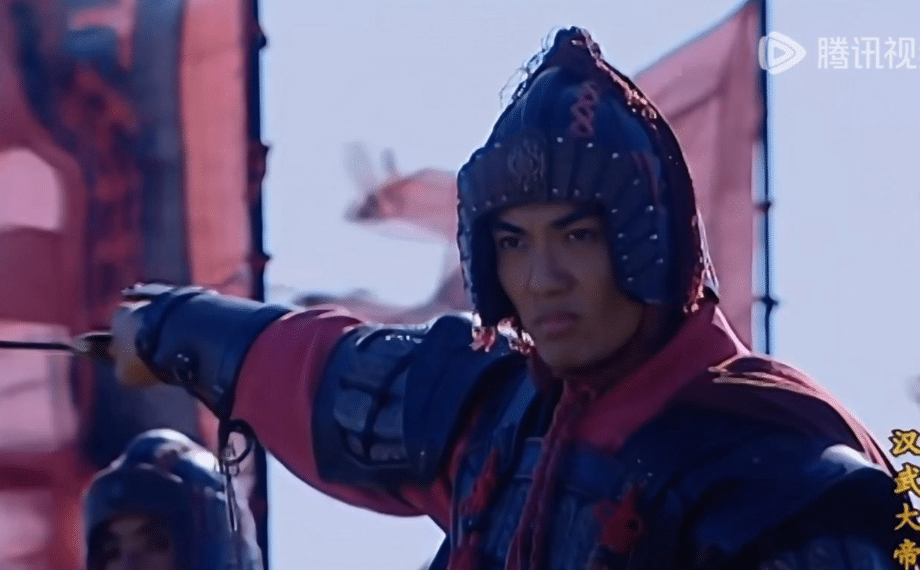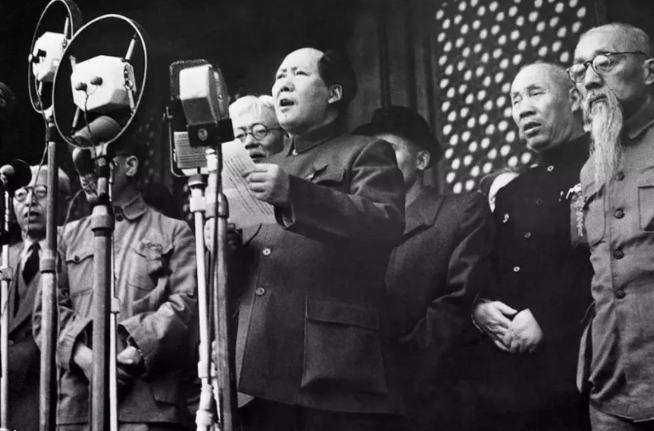In the 5,000-year span of Chinese history, if there’s an ultimate exemplar of rising to power through women, Cui Shi of the Tang Dynasty would claim second place to no one.
At a young age, Cui Shi ascended to the role of prime minister and one of the Three Dukes, constantly navigating between the “female prime minister” Shangguan Wan’er and the “Tang’s foremost princess,” Princess Taiping.
He served through the reigns of Wu Zetian, Emperor Zhongzong, and Emperor Ruizong, wielding immense influence like the midday sun. Yet after his death, even Tang Xuanzong, Li Longji—who had once exiled him—couldn’t help but sigh: “If this man were still here, what worries would I have for state affairs?”
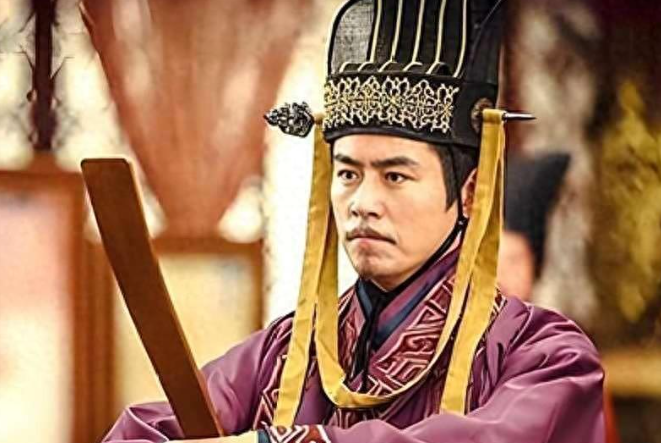
So how did Cui Shi thrive in the treacherous gaps between power and emotion? And why did he linger so profoundly in Tang Xuanzong’s regrets?
Beyond Just a “Noble Lineage”: Cui Shi’s Early Rise
Cui Shi, courtesy name Chenglan, hailed from the prestigious Boling Cui clan—one of the Tang Dynasty’s five great aristocratic families, part of the famed “Five Surnames and Seven Clans.” In an era obsessed with pedigree, this surname alone was a golden ticket to officialdom.
But Cui Shi wasn’t some spoiled heir living off ancestral glory. Historical records note that he “gained literary fame in his youth, his eloquence crowning the world.” Even as a young man, his poetry and prose stunned the court. At around twenty, he passed the imperial examinations as a jinshi and entered official service.
His initial post was as a palace attendant censor, later promoted to deputy minister of personnel, overseeing official evaluations. Though not a lofty position, it was a nerve center of power—where a single comment could seal promotions or demotions.
The court was in turmoil then. After the Shenlong Coup, ministers like Zhang Jianzhi and Huan Yanfan forced Wu Zetian to abdicate and restored Emperor Zhongzong. It seemed like righting wrongs, but undercurrents swirled. Zhongzong was weak-willed, Empress Wei meddled in politics, and Wu Sansi allied with her to seize control anew.
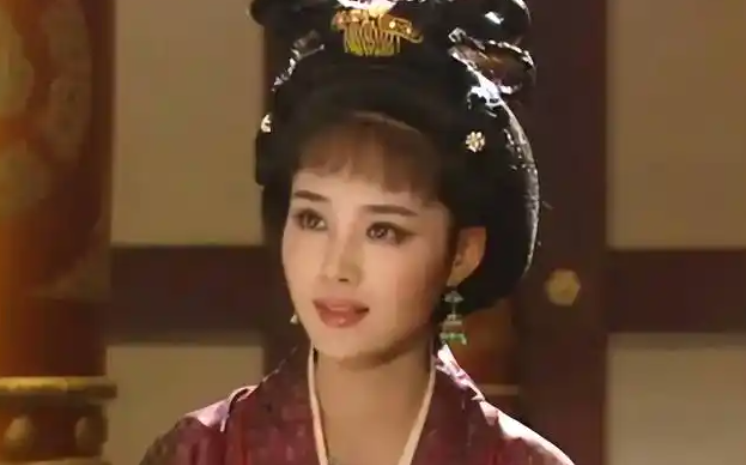
Though Huan Yanfan and his allies were hailed as heroes, they became targets. Cui Shi, originally a close confidant of Huan Yanfan, was assigned to monitor Wu Sansi. But he quickly sensed the shifting winds—Wu Sansi enjoyed Zhongzong’s trust, backed by Empress Wei, while Huan and his group waned.
Seizing the moment, Cui Shi decisively switched sides. He not only abandoned surveillance but actively aligned with Wu Sansi, offering strategies and even proposing: “If you don’t uproot the weeds, they’ll sprout again with the spring breeze.” He urged the complete elimination of the five merit ministers.
As a result, Huan Yanfan was tortured to death en route to exile, the other four met death or demotion, and Cui Shi, credited for his “merit,” rocketed to the position of imperial secretary, stepping into the power core.
Favored by a Literary Genius
If aligning with Wu Sansi marked the start of Cui Shi’s political ascent, his true meteoric rise owed much to a legendary woman—Shangguan Wan’er.
As Wu Zetian’s confidante and Emperor Zhongzong’s consort, Shangguan Wan’er wasn’t just the queen of the inner palace; she was effectively the “female prime minister.” She drafted edicts, advised on state matters, dazzled with her literary talent, and held sway over the realm.
Cui Shi happened to be a star in her literary circle. Both renowned for their writing—his verses elegant and florid, hers honed by “mastery of administrative affairs and drafting edicts under Wu”—they often crossed paths at court poetry gatherings, exchanging verses, bantering with ease.
Crucially, Cui Shi knew how to charm this powerful woman. Beyond his talent, he read her moods with finesse, advancing and retreating with perfect timing.
Unlike other officials who groveled obsequiously, he approached her as a “literary friend”—respectful yet intimate, deferential yet flirtatious.
This teasing proximity soon deepened into closeness. Though the Old Book of Tang doesn’t spell it out, the Zizhi Tongjian hints at their affair, and unofficial histories claim Cui Shi even spent nights in the palace, sharing intimate moments with Wan’er.
Shangguan Wan’er spared no effort in promoting him, repeatedly praising his “talent fit for great duties” to Zhongzong and pushing for his prime ministership. When corruption charges arose against him, she quietly maneuvered his reinstatement.
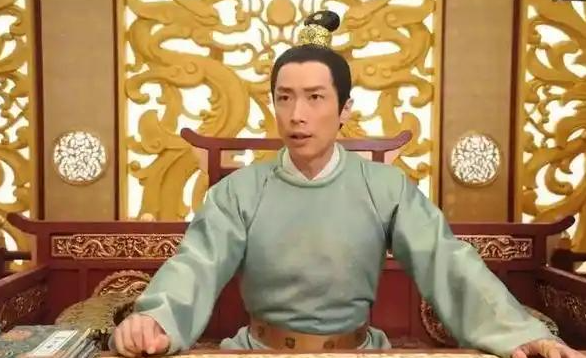
Without her, Cui Shi might have climbed the ranks, but reaching prime minister at just over thirty? Unthinkable.
The Princess’s Pet Minister
If Shangguan Wan’er was Cui Shi’s “discoverer” and “lover,” Princess Taiping was his “backer” and “ally.”
Wu Zetian’s most favored daughter, Taiping was sharp and decisive from youth, inheriting her mother’s iron will.
After Zhongzong’s death, as Empress Wei plotted to emulate Wu Zetian’s emperorship, Taiping allied with Li Longji in the Tanglong Coup, slaughtering Wei’s faction and enthroning Ruizong. Her power peaked: “Of seven prime ministers, five emerged from her gate.”
Cui Shi was among her most trusted advisors, plotting strategies and forging a bond beyond mere loyalty. The New Book of Tang states bluntly: “Shi fawned on Princess Taiping; he married his son to the daughter of jinshi Xiao Zhizhong and consorted with the princess.”
Unofficial tales go further, saying Taiping summoned him to her mansion for “ten nights of seclusion,” inseparable, even whispering that he gifted her a manual on “bedchamber arts” to secure her favor.
Yet their tie transcended romance—it was a classic “political marriage.” Taiping needed a literate, cunning proxy to steer the court; Cui Shi fit perfectly: noble-born, well-connected, eloquent for drafting edicts, ruthless in purging foes.
He, in turn, craved her shield—his reputation as a “woman-climber” was notorious, leaving him vulnerable without muscle.
They formed a ironclad pact. As grand councilor, Cui Shi dominated the court, co-governing with Taiping like an “underground regime.”
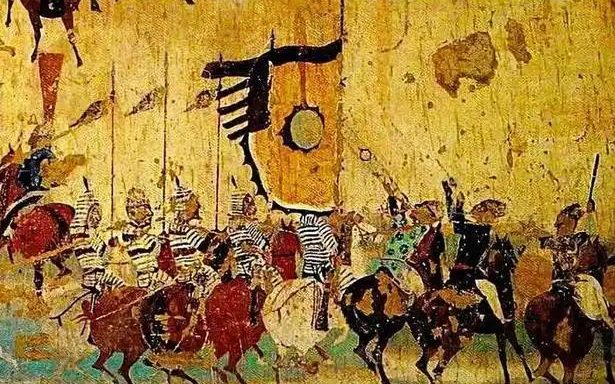
Prime Minister Across Three Reigns
At his zenith, Cui Shi stood as one of the “three great power brokers” alongside Taiping and Wan’er—even Crown Prince Li Longji yielded ground. But his empire rested on a fragile triad.
His pillars were two women, and female influence in a patriarchal society bred controversy. His methods—opportunism and attachment—clashed with Confucian “loyalty to the sovereign,” branding him “spineless.”
Worse, he plunged into the deadliest fray: Taiping’s bid against Li Longji for the throne. Li, Ruizong’s bold son, eyed the crown; Taiping, emulating her mother, meddled relentlessly, even plotting to oust him.
Cui Shi backed Taiping staunchly, joining the conspiracy to depose the prince. But history denied him victory. In 713 AD, Li Longji struck first with the Xiantian Coup, purging Taiping’s allies. As a key player, Cui Shi was demoted to county magistrate in Douzhou, exiled south.
He died soon after in exile, at just 43—a power titan extinguished.
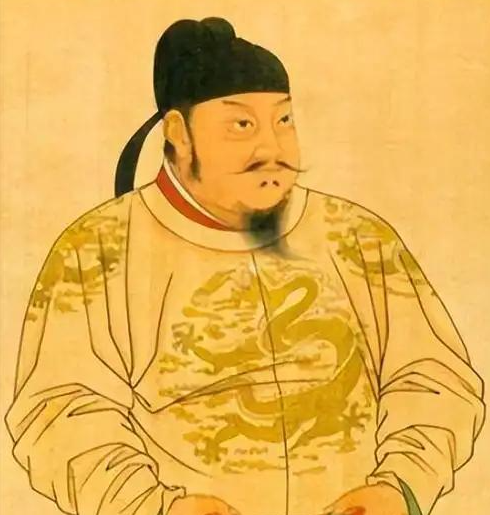
An Emperor’s Lingering Regret
By rights, Cui Shi was Li Longji’s foe, scheming his downfall; Xuanzong should have loathed him, craving his bones ground to dust.
Yet the opposite held. Per the Miscellaneous Records of Emperor Minghuang, Xuanzong once lamented in court: “If Cui Shi were here, must I handle trifles myself?”
Historians add that Xuanzong ordered Cui Shi’s collected works gathered, annotating them personally and praising his “swift wit and outstanding prose.” Why?
First, Cui Shi was genuinely gifted—not just in letters but governance. He ran exams corruptly but unearthed talents; his edicts were logical, ornate, emperor-pleasing.
Second, he grasped “imperial psychology”—reading the ruler’s mind, executing efficiently, no dithering. Later ministers, though honest, were stodgy and slow; Xuanzong’s late reign sought “Kaiyuan prosperity” through doers, not moralizing scholars.
Finally, Cui Shi embodied the “able minister of chaotic times.” Born in turmoil, forged in intrigue, he endured Wu to Tang’s pivot with survival savvy—precisely what Li Longji admired.
In essence, Xuanzong hated the “anti-me Cui Shi” but revered the “capable Cui Shi.”
References
- Old Book of Tang, Volume 74: Biography of Cui Renshi, Appendix: Biography of Cui Shi
- New Book of Tang, Volume 103: Biography of Cui Shi
- Zizhi Tongjian: Tang Annals (Volumes 209–211)
- A New Account of Tales of the Taiping Era, Volume 10: Honors and Favors
- Miscellaneous Records of Emperor Minghuang (Tang Dynasty, Zheng Chuhui)
- Annotated Biographies of Tang Literary Masters: Cui Shi (Edited by Fu Xuancong)
- Epitaph of Shangguan Wan’er (Unearthed in 2013, providing new historical material)
- Biography of Princess Taiping (Lei Jiaji)
- Draft Essays on Tang Political History (Chen Yinke)
- Reader in Chinese Women’s History (Edited by Deng Xiaonan)

